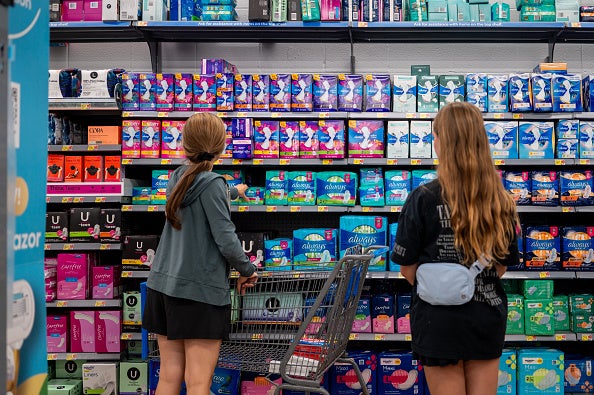This website uses cookies so that we can provide you with the best user experience possible. Cookie information is stored in your browser and performs functions such as recognising you when you return to our website and helping our team to understand which sections of the website you find most interesting and useful.
Your support helps us to tell the story
Our mission is to deliver unbiased, fact-based reporting that holds power to account and exposes the truth.
Whether $5 or $50, every contribution counts.
Support us to deliver journalism without an agenda.

Louise Thomas
Editor
Teens are increasingly struggling to afford and gain access to period products such as pads and tampons.
According to a study from the Children’s National Hospital in Washington DC, the concept of period poverty, or the lack of access to period products and general education regarding the menstrual cycle, affects young women of all races, ethnicities, and health insurance backgrounds equally.
“Youth who are living in neighborhoods with high opportunity had similar rates of experiencing menstrual inequity as those living in areas or neighborhoods that were underresourced,” the study’s co-author Meleah Boyle, a staff scientist at Children’s National said in an interview with NBC News. “This is impacting everyone.”
The study is scheduled to be presented on Saturday, September 28, at the annual meeting of the American Academy of Pediatrics in Orlando, Florida.
The findings are based on 1,816 people between the ages of 13 and 21, who came into the emergency room at Children’s National from mid-January 2024 through the end of June and were asked if they used rags or tissues at any point during their period in the last year or did not have the money to buy pads and tampons.

Using products that have either already been used or other unhygienic products such as rags can create a greater risk of bacterial infections in both the vagina and urinary tract.
If the people surveyed said yes, they were considered to be in the category of experiencing period poverty. Out of the original 1,816 people, 597 of them were experiencing period poverty which is 32.9 per cent.
The 597 people did not include people who were surprised with their period possibly starting late or early and needed to use something immediately.
In an interview with NBC News, Dr Shelby Davies, an attending physician in the adolescent medicine division at Children’s Hospital of Philadelphia who was not involved in the study, explained that the numbers in their study do not align with previous research she’s seen.
“At first I heard one in five, then I heard one in four, and now we’re hearing one in three,” she told the outlet.
However, she thought there might be an explanation for the higher number that doesn’t require more young women to be without access to period products.
“What it could indicate is that we as a society are talking about it more,” Davies said. “I think the early numbers might have been skewed just based on what people felt comfortable talking about. We were likely underrepresenting the issue.”
Davies suggested various questions that pediatricians can ask their patients to gauge whether or not they are experiencing period poverty themselves instead of the usual, “When was your last period?”
“What are you using to manage your periods? Are you able to access tampons or pads? What barriers do you have?” and “Do you feel in control of your periods?” were alternative questions.
The study’s goal is to keep pediatricians aware of the issue and push for more widely available period products.
“Women’s health in general has been deprioritized,” said Dr Monika Goyal, a pediatric emergency medicine specialist and co-director of the Center for Translational Research at Children’s National. “Just like toilet paper is readily available in all restrooms, we’d love to see improved access to free menstrual products everywhere.”



 Africana55 Radio
Africana55 Radio 
